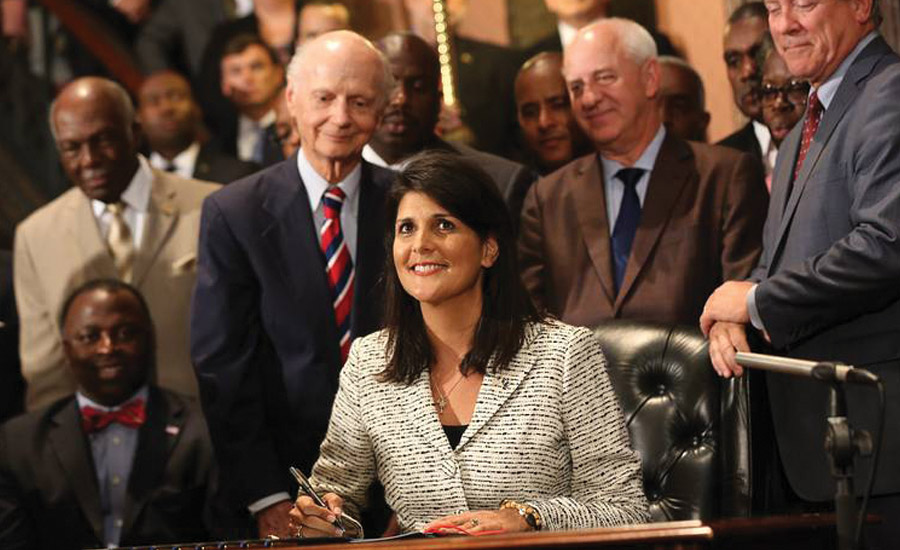COLUMBIA, S.C. — On Feb. 16, South Carolina Gov. Nikki Haley signed H 3874 into law, which provides an income tax credit to any individual or business that “constructs, purchases, or leases certain solar energy property and places it in service in this state … and allows an income tax credit for certain costs incurred by the taxpayer in the purchase and installation of geothermal machinery and equipment.”
H 3874 is retroactively effective starting Jan. 1, 2016, and defines geothermal machinery and equipment as any machinery and equipment for use at a taxpayer’s residence that:
• Is a heat pump that uses the ground or groundwater as a thermal energy source to heat a structure or as a thermal energy sink to cool a structure;
• Uses the internal heat of the earth as a substitute for traditional energy for water heating or active space heating or cooling; and
• On the date of installation, meets or exceeds applicable federal Energy Star requirements.
The law allows a tax credit against the income tax liability of a taxpayer equal to 25 percent of the costs incurred by the taxpayer in the purchase and installation of geothermal machinery in or on a facility in South Carolina and owned by the taxpayer. The tax credit cannot be claimed before an installation is completed. The amount of the credit in any year may not exceed $3,500 for each facility or 50 percent of the taxpayer’s tax liability for that taxable year, whichever is less. If the credit amount exceeds $3,500, the taxpayer may carry forward the excess for up to 10 years.
Jay Egg, owner of Egg Geothermal, recently discussed the matter with Brett Ross, regional manager, WaterFurnace Intl. Inc. During this discussion, Ross said he could trace the roots of this newly passed geothermal legislation back to a weekend about a year ago when WaterFurnace associate Steve Weitzel met lobbyist Robert Adams at the South Carolina Association of Heating and AC Contractors (SCAHACC) convention. Several weeks later, Adams called Weitzel and mentioned a renewable energy (RE) bill had been introduced that included geothermal heat pumps (GHPs). Utilizing some previous contacts, Weitzel began to schedule meetings with lobbyists throughout the state and ultimately accepted a proposal from Patty Pierce of Capital Consulting Group of the Carolinas LLC to represent the interest of GHPs in this endeavor.
By the time the bill passed through sub-committees, it was stripped of everything but solar credits for super-fund sites. During the political summer break, WaterFurnace, through dealer contributions, funded a program to educate the legislators in each of their districts on the merits of geothermal heating and cooling. With Pierce as their lead lobbyist, they were able to reach out to each of the politicians and invite them to operational geothermal installations with real voters in each of the local districts.
“These politicians got to see and hear how the technology works, and, more importantly, what their constituents thought of the technology,” said Ross.
Ross encouraged other states to follow South Carolina’s lead and even offered up a so-called Geothermal Playbook.
“Organize stakeholders and get them behind the effort, hire a lobbyist with a good reputation for moving renewable energy technology through the legislative process and educate stakeholder representatives and schedule sight visits in each district,” he said. “Make certain the voters, homeowners, lobbyists, and GHP stakeholders are all showing support.”
Publication date: 3/21/2016
Want more HVAC industry news and information? Join The NEWS on Facebook, Twitter, and LinkedIn today!



